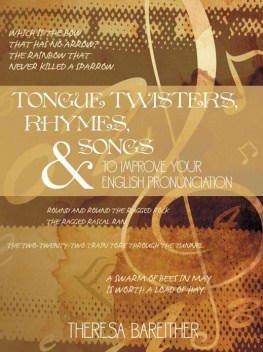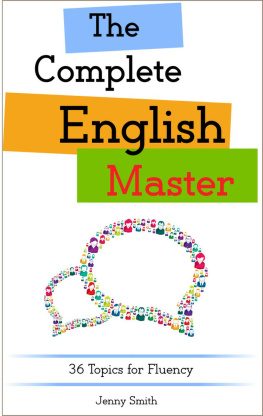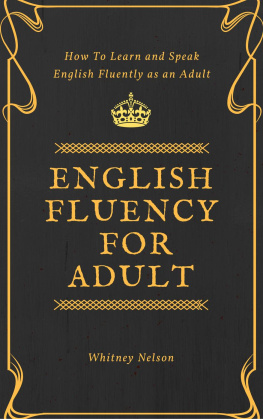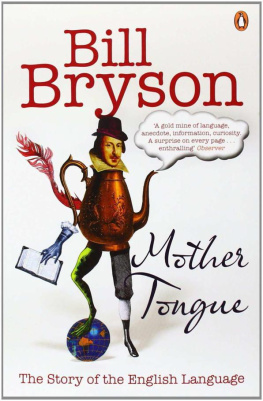This workbook comes with two CDs. To receive the accompanying CDs, please contact the author at . Tongue Twisters, Rhymes, and Songs to
Improve Your English Pronunciation Theresa M. Bareither, SLP Speech-Language Pathologist  AuthorHouse LLC 1663 Liberty Drive, Suite 200 Bloomington, IN 47403 www.authorhouse.com Phone: 1-800-839-8640 2011 Theresa Bareither. All rights reserved. 06/24/2013 No part of this book may be reproduced, stored in a retrieval system, or transmitted by any means without the written permission of the author.
AuthorHouse LLC 1663 Liberty Drive, Suite 200 Bloomington, IN 47403 www.authorhouse.com Phone: 1-800-839-8640 2011 Theresa Bareither. All rights reserved. 06/24/2013 No part of this book may be reproduced, stored in a retrieval system, or transmitted by any means without the written permission of the author.
Published by AuthorHouse ISBN: 978-1-4343-3419-0 (sc) ISBN: 978-1-4685-6594-2 (e) Table of Contents Who are you, and why are you reading this book? Okay. You are living and working in the United States, or perhaps you are living and working in your home country using English on a daily basis for business. You have basic English language fluency. I admire you because it has been a dream of mine to be able to speak another languageany languageas well as you speak English. But darn it! Dont you get a little tired of those funny looks? Doesnt it get annoying to hear, Could you repeat that please? The purpose of this workbook is to help you realize why you get those occasional reactions from your listeners, and to take the good English you already have and polish it enough to keep those questions to a bare minimum. And while were at it, Id like for you to have some fun.
Who am I, and why did I write this book? I have been a Speech-Language Pathologist for 37 years. During those years I have worked in public and private schools and universities, hospitals, clinics, homes, and corporate settings. Over the past 12 years I have helped 725 people from more than 40 language backgrounds with their spoken and written English. I prepared this workbook and accompanying CDs in order to help those who do not have access to live classes and tutoring. Speech-Language Pathologists are trained to analyze the anatomy and physiology of the speech mechanism. We are required to complete a Masters Degree and an internship, and to pass an examination given by a national certification board.
The core of what we do is to help people communicate more effectively in a language that they have already learned to speak. I say this so that you will not confuse me with an English teacher. In order for me to help you, you must already be able to have a conversation in English. This workbook is designed to give you some effective yet fun practice guidelines and drill materials to improve your pronunciation of North American English. It is based on Standard North American pronunciation, the style used by the major news network anchor people. I have aimed for a scientific foundation, but have tried not to be too stuffy or academic.
For those who are interested in learning more, I have included a glossary (Appendix C) and a list of resources. Since I want to make this fun, I have avoided use of technical words wherever I could, and opted for the plainest, most straightforward language I could find. Improving your English pronunciation will take a lot of work, but it shouldnt be boring. Ive been telling my clients for years that regardless of their current level of proficiency in English, I have two hopes for them. One is that they move ahead on the proficiency continuum a few notches more, and the other is that they will have fun doing it. That is my wish for you too.
One of my favorite professors, Dr. Jay Rosenbek, said that any speech therapist should try to elicit at least one smile per session. I believe that. I also believe that if I havent done that, Ive goofed. I also love what prolific author, linguist, and philanthropist Suzette Hadin Elgin says in the introduction of her book, The Grandmother Principles , You can trust me to get you safely to the end of this book. I have tons of experience in leading people through difficulties in the pronunciation of English.
There is no such thing as perfect English. If you consider spoken English proficiency to fall along a continuum with no English at one end and perfect English at the opposite end, you probably fall somewhere in between the halfway mark and the perfect end. Your English is already pretty good, or you wouldnt be reading this book. The reason we can say that there is no such thing as perfect English is that even the experts dont always agree about usage and pronunciation. Unlike other languages, English has no governing authority that allows or denies how words are spelled, used, and pronounced. An English dictionary is not a rulebook, but a suggested guideline.
It is based on the pronunciation, spelling, and usage of most educated speakers. English is in a constant state of change. For example, week end was spelled as two separate words when my mother was a schoolgirl. By the time I was in school, the preferred spelling was week-end. Somewhere along the line, the preference changed to weekend, and nobody sent me the memo! So, English is a growing, developing language. As we import more words from other languages, and from increasing technology, we will continue to see changes and variations.
Dont be discouraged if you sometimes feel like me, that you didnt get the memo. Even native speakers of English sometimes feel this way. How this workbook is structured North American English contains about 44 speech sounds. This workbook is not intended to address all of them. Ive only included those that I have found to cause the most grief for people who are speaking English as a second language. Ive divided the workbook so that each section addresses specific problem sounds.
Since we have never met, and I have not had the opportunity to evaluate your English pronunciation, please go to Appendix B-Index of Practice Materials by Language -and find your mother tongue in the list from the left column. Trace across and note the checkmarks to find the chapters that typically are difficult for ESL ( E nglish as a S econd L anguage) speakers of your native language. You may find that some of these no longer apply to you if you are more proficient with English or that you need others if you feel less proficient. I follow each chapter heading with a brief discussion of the nature of the sound and the difficulty speakers usually have with the sound. I then list contrastive pairs. These are words that compare the desired word with the one the listener will think you have said if your mother tongue causes you to use the contrasted sound.
For example, you mean to say that you work in a la b , but you dont voice the final /b/. Your listener is going to think you said la p , and is going to wonder just what kind of a job you have! Please do not pass over this section. It is essential that you hear these differences before you go on. When you have spent enough time with the contrastive pairs to hear the differences clearly, you will be ready to go to the practice words. Listen to each word and repeat it in the pause provided on the CD. Be sure to record yourself and listen to your practice words.
Dont go on until you hear the correct sound. Next, do the practice sentences following the same guidelines: listen, repeat, record, and listen for the accuracy of your productions. When you have mastered the sentences, go to the contrastive pairs in practice sentences and again follow the same guidelines. After these steps, you will be ready for the tongue twisters, rhymes, and songs at the end of each section. Notations You will notice that throughout this workbook, I mark some of the words by their frequency. This is so that you can make some decisions about how to best spend your practice time.
For example, the most frequently used word in English is the . If you see a word that is ranked as the 187 th most frequently used, please dont think, Gee, how important could number 187 be? There are 200,000 commonly used words in English. Puts number 187 in a whole new light, doesnt it? I have included the 1,000 most frequently used words in Appendix D. Words in parentheses behind the first entry in the practice words lists are homophones. For example, in Chapter 2, on initial unvoiced consonants, the 2 nd practice word for /t/ is listed as tail (tale) . This tells you that those two words are pronounced exactly alike.
Next page












 AuthorHouse LLC 1663 Liberty Drive, Suite 200 Bloomington, IN 47403 www.authorhouse.com Phone: 1-800-839-8640 2011 Theresa Bareither. All rights reserved. 06/24/2013 No part of this book may be reproduced, stored in a retrieval system, or transmitted by any means without the written permission of the author.
AuthorHouse LLC 1663 Liberty Drive, Suite 200 Bloomington, IN 47403 www.authorhouse.com Phone: 1-800-839-8640 2011 Theresa Bareither. All rights reserved. 06/24/2013 No part of this book may be reproduced, stored in a retrieval system, or transmitted by any means without the written permission of the author.